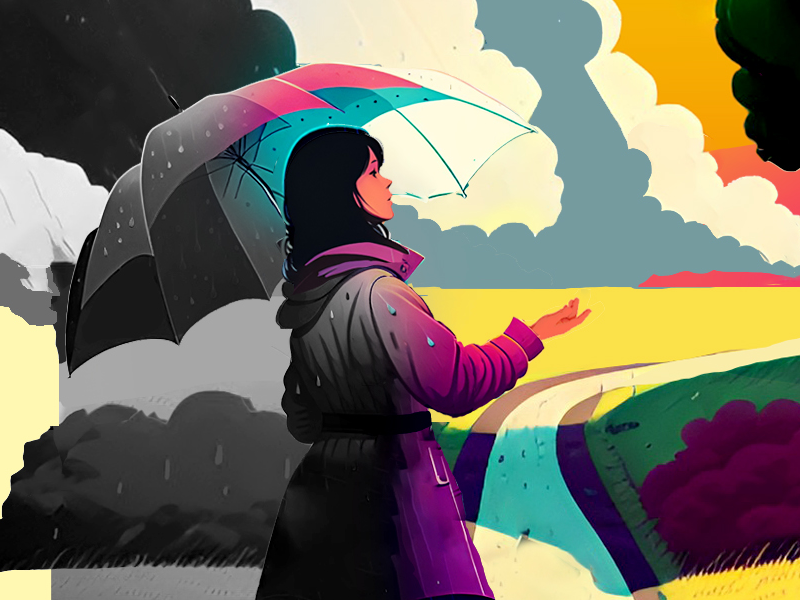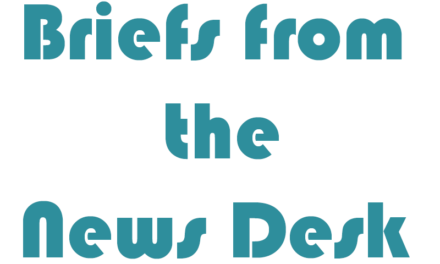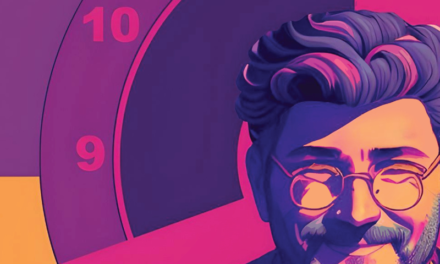Support Groups and Education Can Help
By Candace Romano
Certified Grief Educator
A recent survey indicated that almost 60% of Americans were experiencing grief – and that was before COVID.
Since COVID, that percentage has undoubtedly increased. Sadly, the needs of those grieving are largely going unaddressed; grief counselors are in short supply, and only just recently, universities and colleges began to add grief education to their curriculums.
I found the lack of help and access to grief counseling personally. My sister, who shared with me a Wauwatosa childhood filled with school, church, and many other growing-up memories, died four years ago to multiple myeloma. I didn’t initially grieve; I was caught up in the COVID drama and was consumed with keeping my household safe.
But on the 2nd anniversary of her death, I fell apart – and I had no real idea why. The “why” was delayed grief: yes, it’s a thing. And that began my grief journey, a journey that continues to this day.
I went to counselors who said I had anxiety (yes, related to grief), and when I mentioned my sister, none tied my feelings of fear and anguish to her death. In fact, one told me I was over all that already.
News flash: Grief doesn’t end, and mine was just stepping out.

Eventually, I found a counselor who specialized in grief and knew exactly what I was going through. She told me that to heal, I had to feel my feelings – and that meant all of them, no matter how gut-wrenching they were.
I also began reading everything I could about grief and delayed grief (which is often masked by anxiety), the length of time it takes for the unbearable pain to end (it will), why grief ebbs and flows, and how grief affects you physically, spiritually, and emotionally.
The spiritual rifts often come as a surprise to many, especially those with deep faith. All of a sudden, they feel abandoned and their faith questioned. Again, it’s common and normal.
Grief shakes your very foundation. I liken it to being in a snow-globe that gets shaken and turned upside down, making many people wonder if you are going crazy or have a mental illness. You’re not, and you don’t.
People like to say that time heals all wounds…and it helps. But when you experience profound grief, every facet of your life changes, and time alone won’t do the trick. I read a lot about healing grief, and, although we may always have a hole in our heart for our loved one, we can become whole again. It takes time, typically much more than you think, and intention.
This self-education took time and much reflection, and I wanted to learn more, and honor my sister.
 That’s when I began my journey to assist others who, like me, could not find the support they so needed. To do so, I formed Living After Loss LLC and became a certified grief educator through a program offered by nationally known and acclaimed grief expert David Kessler.
That’s when I began my journey to assist others who, like me, could not find the support they so needed. To do so, I formed Living After Loss LLC and became a certified grief educator through a program offered by nationally known and acclaimed grief expert David Kessler.
Grief is extremely complicated and involves much more than the well-known stages of grief identified by Elizabeth Kubler-Ross: denial, anger, bargaining, depression, and acceptance.
Kessler, who worked with Kubler-Ross, added an additional stage with her blessing: meaning, which refers to adding meaning to our lives, not understanding the reason for the person’s death. And meaning, by no means, makes up for the loss. You will always rather have that person with you.
Learning about grief is helpful, but studies indicate that sharing in a safe, group setting can best comfort the bereaved, help them feel less isolated and give them the tools they need to handle overwhelming emotions of grief. I know from personal experience that learning about grief and having the chance to share my feelings with others traveling the same road helps me tremendously.
The good news is we can heal, and sharing our grief, having others witness our grief, helps us on that path. The snow-globe ever so slowly will right itself.

About the author:
Candace Romano holds grief education groups at various venues, most notably at St. Matthew’s Lutheran Church in Wauwatosa. She welcomes any business or organization that would like to host/partner with her to the benefit of their staff or community. Individual sessions also can be arranged, though she says group education is most beneficial.
Romano is also available for speaking engagements. She most recently was invited to present at a meeting of the Wisconsin Speech-Language Pathology Association.
Additional helpful resources, she says, include:
- Grief.com, David Kessler’s site, dedicated to all types of grief, providing informational and educational resources ranging from podcasts and videos to directories of groups and counselors.
- What’sYourGrief.com, a site providing grief theory, a blog, a book, and an online course.
- ChurchAndChapel.com, adds grief support to its funerals and memorial services.
- “A Grief Observed,” by C.S. Lewis, is a collection of Lewis’s reflections on his experience of bereavement following the death of his wife, published in 1961. A true sign that grief has always been part of the human condition.
Candace Romano’s personal philosophy: “You can’t speed up the grieving process; it is as individual as you are,” she says, “but sharing in a supportive community will help you feel less isolated and know that you are not alone.”
For more information, contact Candace Romano at:
- candacedromano@gmail.com
- 414-687-2196





